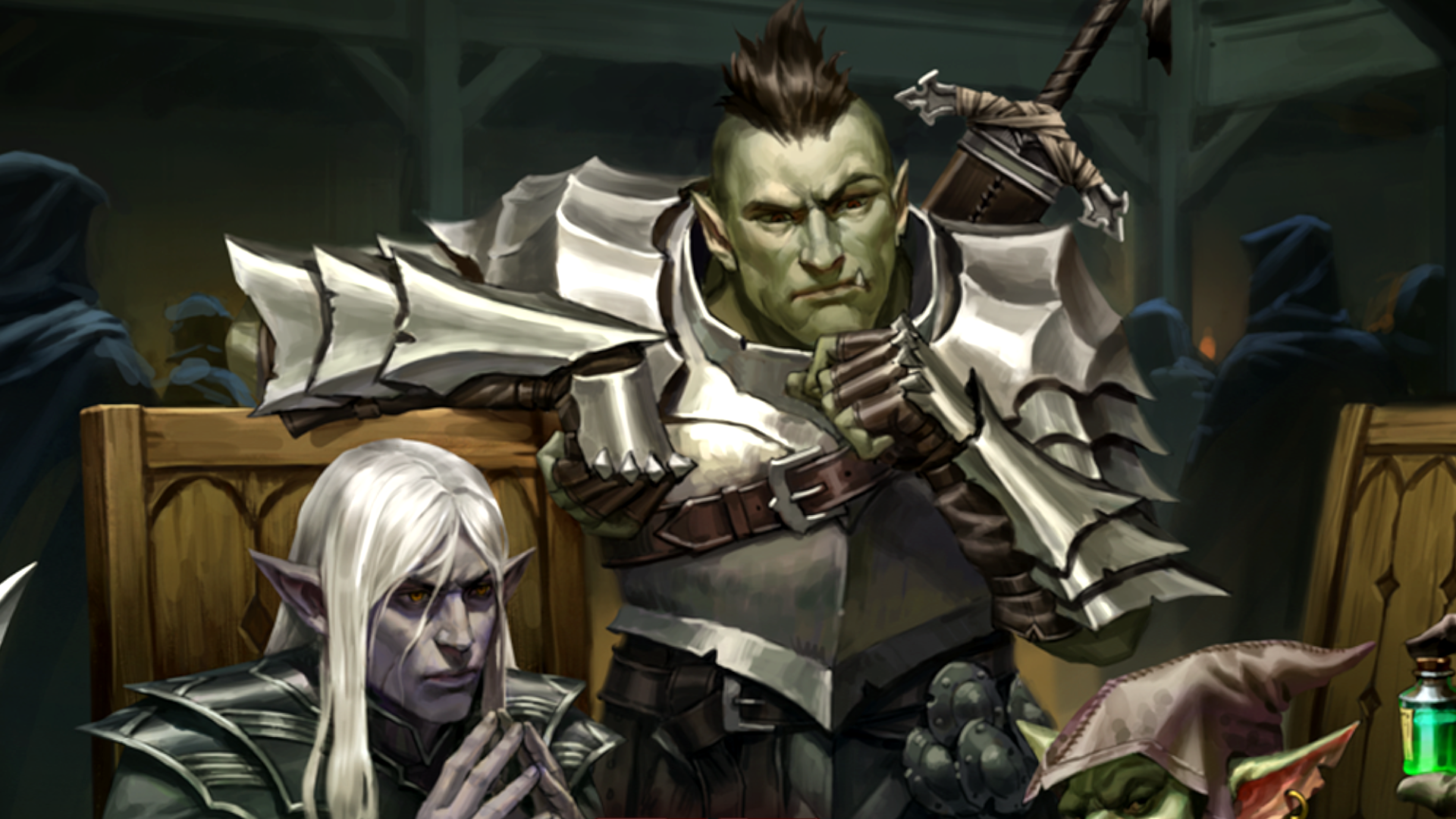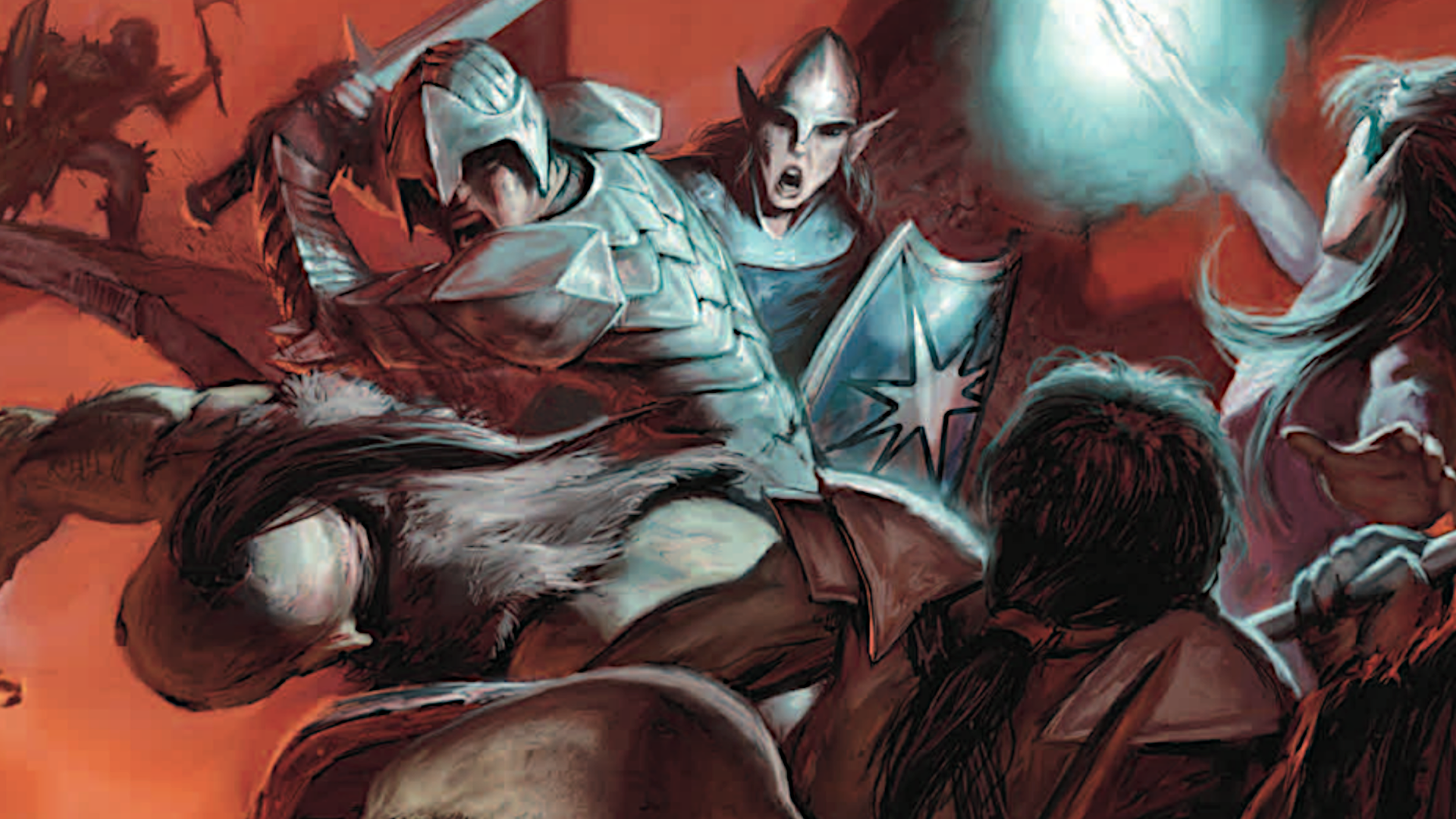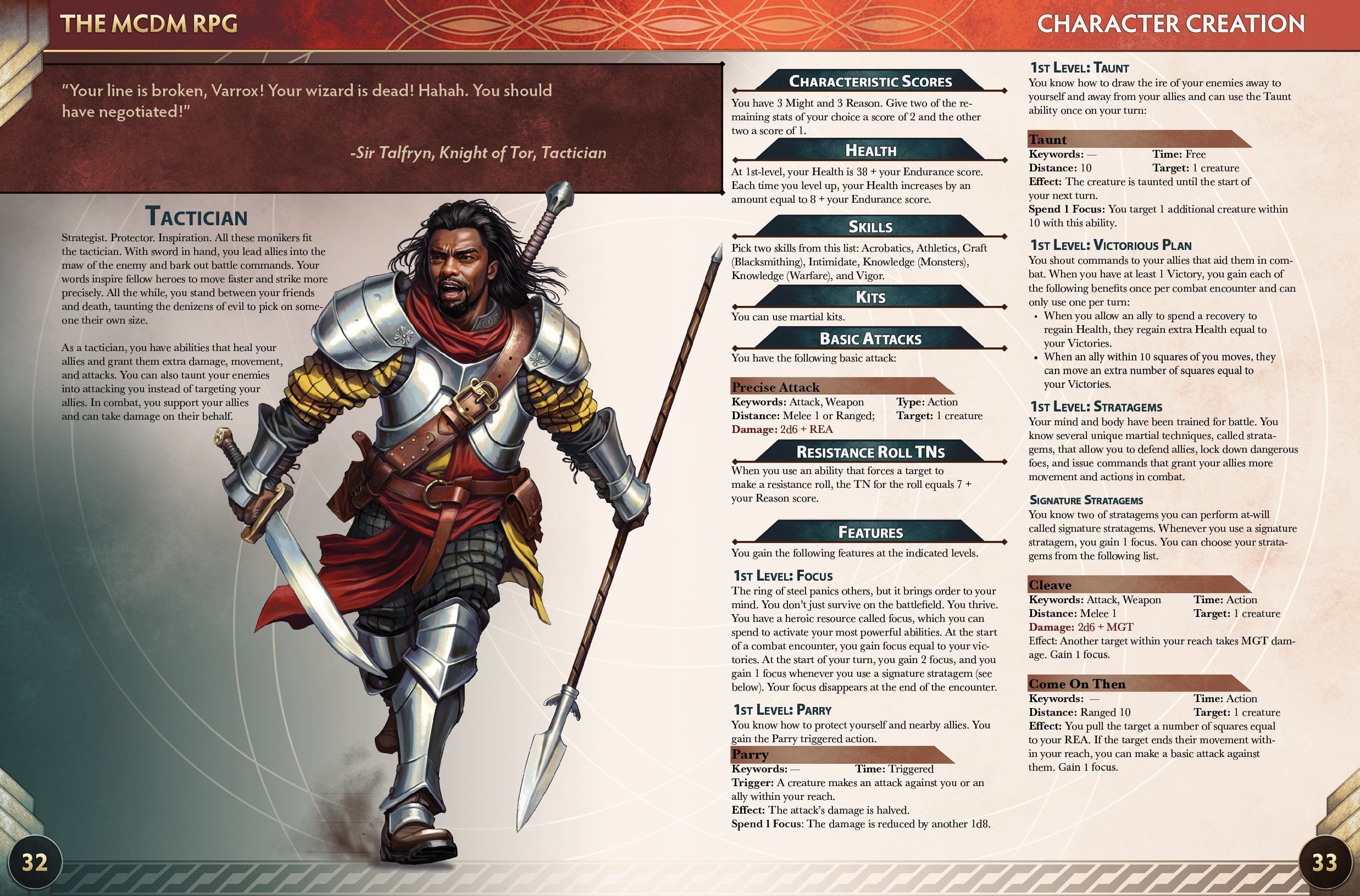Matt Colville's indie RPG, a direct challenge to D&D's jack-of-all-trades fumbling, has earned nearly $4 million on BackerKit
The MCDM RPG wants to be "unburdened by sacred cows from the 1970s".

While Dungeons & Dragons' huge OGL stumble didn't quite convert the game's captive audience to the hundreds of other (very good) TTRPGs out there, it's still caused a resurgence of people checking out other games.
It also prompted several creators (like the minds behind The MCDM RPG) to start doing their own thing—both to capitalise on some freshly curious players, and to avoid a scenario where a game with an uncertain future is vital to their livelihood.
MCDM is a company started by Matthew Colville, most known for his D&D videos on YouTube. It's produced several popular supplements for D&D's 5th edition (5e) such as Strongholds & Followers, which fleshes out the game's understaffed mechanics for base building.
The MCDM RPG itself was announced by Colville back in February: "our goal is to make something tactical and cinematic … heroic fantasy, mostly fighting monsters, with like two other gameplay pillars we think are important."
The game directly wants to get all the fuss out of your dungeon crawling. While 5e streamlined all of this considerably, it still has a lot of holdovers—such as lengthy equipment tables, a half-hearted stab at environmental and rations rulesets, and a zero-to-hero philosophy.
While none of those things are inherently bad, all that old school crunch goes largely ignored by players wanting a more heroic experience (there's a reason lots of games start at level 3). As its BackerKit page states, the game is "unburdened by sacred cows from the 1970s".
It's been doing well. At the time of writing, the BackerKit looks like it could hit $4 million in funding, or at least come very close. Colville's promise to escape older editions of D&D is also very promising—and also a little funny, because that's exactly what D&D's 4th edition (4e) tried to do. And people hated that.
Keep up to date with the most important stories and the best deals, as picked by the PC Gamer team.

For the uninitiated, 4e looks a lot different from what you may be used to. That's because it tried to scrap the ye olde spell slots for specific abilities characters could use. Traditionally, Wizards have big spell lists whereas Fighters are limited to 'I roll to attack'. Instead, 4e had Powers, which were special abilities you could fit on a trading card, and everybody got them.
This wasn't well received at the time—it felt like players' precious D&D was becoming MMO-ified, transformed from the pen & paper game they loved into something distinctly gamey. 4e became something of a pariah, and a lot of its ideas were scrapped for 5th edition. Despite this, a lot of newer indie RPGs are borrowing from it.
An example of MCDM doing this is in its classes abilities, for example: the Tactician class can use "Come On Then". Aside from being a taunt I heard a lot from angry lads while growing up in the south of England, "Come On Then" forces an enemy to move a number of squares then lets you hit them if they end their turn within your reach. It also has complex tests that resemble 4e's Skill Challenges, a system that almost every 5th edition DM I know has sneakily added to their home games anyway.

Granted, the MCDM RPG does a lot of things differently. For example: you don't roll to hit—you just roll damage. This addresses 4e's sluggish combats, which could drag on forever. "You cannot miss. No more wasted turns, no more burning resources on spells only for your target to 'save.'"
It's very reminiscent of another indie system I've played and enjoyed. ICON RPG from Massif Press (the same devs who made the mecha game Lancer) is similarly 4e in vibe. ICON gives every character 'fray' damage, which applies whether you hit or miss—its engine is fueled by powers-style abilities, too.
I'm glad to see more designers avoiding 5e's jack-of-all-trades pitfalls, as well as borrowing from Wizard of the Coast's black sheep. 4e's only major crime was that it was a sequel to Dungeons & Dragons—clashing with expectation rather than taste—but it still had a ton of good ideas, many of which deserve to survive.

Harvey's history with games started when he first begged his parents for a World of Warcraft subscription aged 12, though he's since been cursed with Final Fantasy 14-brain and a huge crush on G'raha Tia. He made his start as a freelancer, writing for websites like Techradar, The Escapist, Dicebreaker, The Gamer, Into the Spine—and of course, PC Gamer. He'll sink his teeth into anything that looks interesting, though he has a soft spot for RPGs, soulslikes, roguelikes, deckbuilders, MMOs, and weird indie titles. He also plays a shelf load of TTRPGs in his offline time. Don't ask him what his favourite system is, he has too many.

